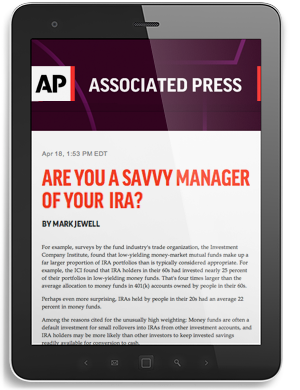Wealth Management: Private Pursuits

Specialist firms have also entered the market, offering advice that they say is free from the conflicts of interest that bedevil network banks (which generally try to earn a commission from selling investment products) and investment banks (which often try to sell their own products and channel trades through their own brokers).
Special Report: International Banking
One such firm is Vestra Wealth, formed by a group of former UBS wealth managers. “There is an inherent conflict between trying to be an adviser and trying to sell a product,” says David Scott, one of the firm’s founders.
The biggest threat to incumbents, however, comes from outside the traditional banking sector, where hungry innovators are trying to cut the cost of investment advice and wealth management drastically. The most fertile ground for many of these new firms is in California, where a generation of technology entrepreneurs that made its money online is preparing to invest it online too. The region is already awash with traditional wealth managers. UBS, Goldman Sachs, JPMorgan and others are expanding in San Francisco and around Silicon Valley. They have recently been joined by online rivals such as Wealthfront, MarketRiders and Personal Capital, all of which use technology to help clients build customized asset portfolios at a small fraction of what traditional wealth managers would charge.
Wealthfront, which is aiming its offering squarely at Silicon Valley’s new rich, will manage money for a fee of 0.25% a year, using sophisticated algorithms that measure risk tolerance and build a diversified portfolio. Another new entrant is Personal Capital, started by Bill Harris, a former chief executive of PayPal and Intuit. It tries to straddle the world between cheap online wealth management and the old world of private banking. Customers can sign up online but the firm provides expert portfolio and tax-management advice and assigns wealth managers to individual customers. In Britain a firm called DCisions has crunched the data on millions of portfolios to obtain risk-adjusted returns as benchmarks for new investors. The data show up clearly how wealth managers’ fees have affected the value of the portfolios and what difference the managers’ advice has made.
Tom Blaisdell, a partner at DCM, a venture fund, manages his savings through MarketRiders. For a flat fee of $14.95 a month the firm assesses his tolerance for investment risk and helps him construct a portfolio of investments using exchange-traded funds that he can buy through any discount broker. The firm monitors his asset allocation as markets move and sends him quarterly instructions on what to buy or sell to rebalance his portfolio. “I’ve got a personal rant on this but 90% of what people call ‘investing’ in this country is what I call ‘gambling’,” says Mr Blaisdell. “It is a big area for innovation.”
Betterment has a simple interface that allows its customers to divide their investments between a basket of stocks and one of bonds. For a fee of 0.15% the company will keep rebalancing the portfolio between the two. Among its investors is Sean Parker, Facebook’s founding president.
Many private bankers are openly scornful of such do-it-yourself wealth management. They point to the rise of online stockbrokers a decade ago that led to predictions of the death of wealth management. Yet their business is bigger than ever because most customers are not confident enough to trade.
Even so, the newcomers’ influence is already changing the way the rest of the market works. Fees across the industry are falling and becoming more transparent. That will force banks to offer their own online wealth-management services and to invest in online systems that will provide sensible advice at low cost. Those that are best placed to succeed are likely to be large international banks with extensive retail branch networks.
* Rebalance shares the same investment platform as MarketRiders.






